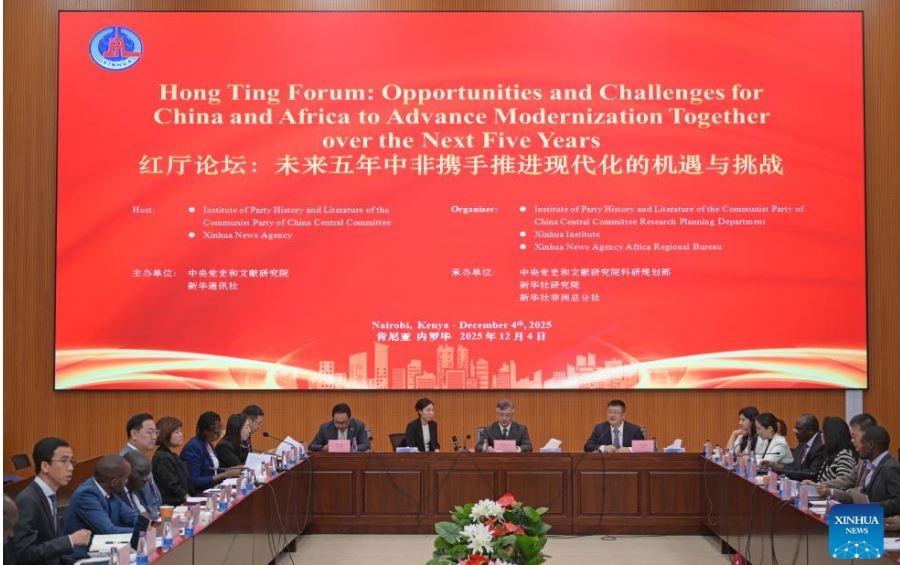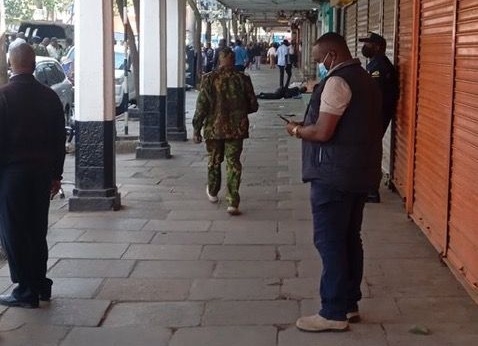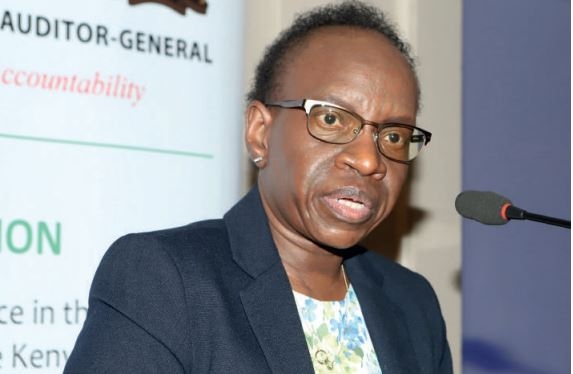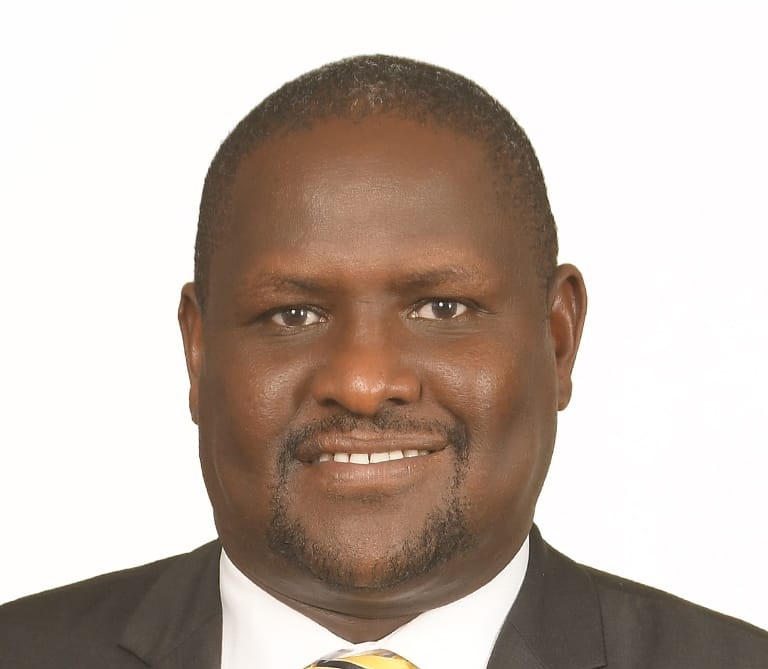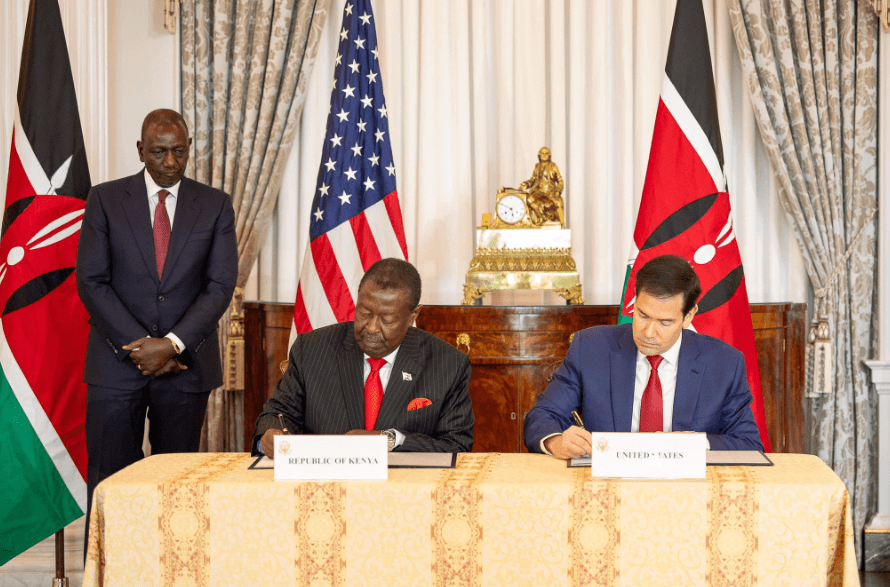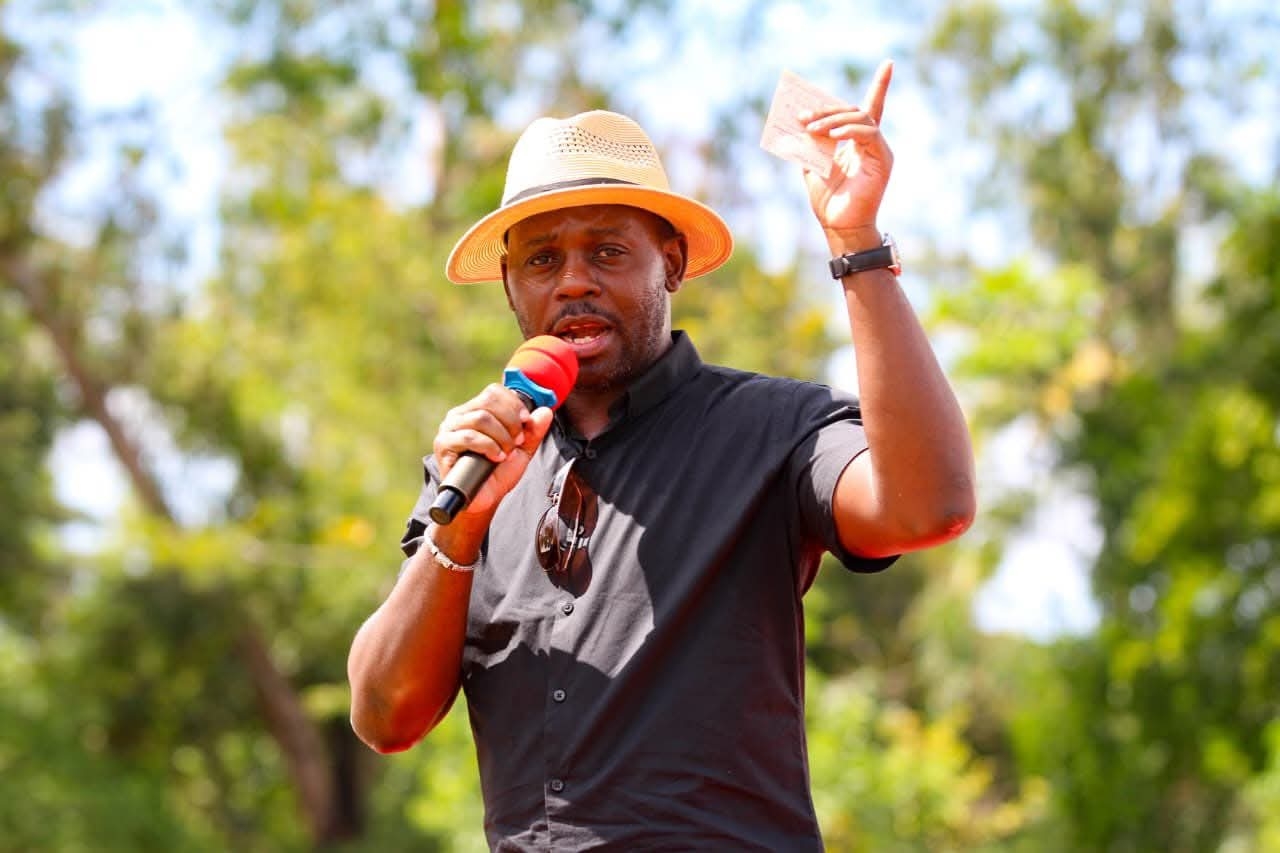Marsabit Governor Mohamud Ali and his deputy Solomon Gubo Riwe on Thursday took the oath of office for their second term, promising the residents to continue working for the welfare of all the people.
The oath of office administered by Justice Christine Wekesa and Edward Muriithi was witnessed by thousands of people who attended the occasion.
Mohamud ran on the United Democratic Movement party and polled a total of 38,803 votes, defeating five opponents including his close competitor Francis Chachu Ganya who secured 28,279 votes.
The governor thanked the people of the county for their massive support at the August polls, saying he would not renege on his electioneering promises.
"I am humbled by the love you have shown us, eternally grateful for the faith you have expressed in our leadership, inspired by the trust and conviction you have shown in our capacity to steer the affairs of our county," Ali said.
Speaking after being sworn in, the governor said he was honoured to accept both the oath of office of governor and the duties that come along with it.
His first term had trials and triumphs in equal measure, he said.
"We pursued unrelenting efforts to make health services better, more accessible and affordable, expanded our facilities for early childhood education to give more and better opportunities to our children and created more scholarship opportunities to give Marsabit children the best education they deserved," the county boss said.
On trials, the governor said the prolonged dry spell, coronavirus and tribal conflicts shook the many planned programmes.
"We continue to endure prolonged drought situation in our county and bloody ethnic conflicts that destabilized our lives and shook the foundation of social harmony and interethnic coexistence," he said.
Governor Ali promised that during his second term, his administration will be committed to working for every citizen and lifting their wellbeing.
He said that to realise the vision as reflected in his manifesto, the focus would be on the social sector by improving healthcare services, education, provision of social security, caring for the vulnerable and the disadvantaged in the society.
"I will continue to serve you as your servant leader in absolute humility and devotion to your collective needs and common aspiration as the people and community of Marsabit," he said.
He promised to rapidly develop road infrastructure which would provide a framework to drive inclusive growth, build the economy and solidify the county's status as a choice investment destination.
Other key areas Governor Mohamud in his second term would work on is cohesiveness amongst the people residing in the county and improving the general security of lives and property by working closely with security agencies, elected leaders, religious and community elders.
The county boss said he was encouraged by the trust bestowed on them by the electorate and grateful for their belief in his leadership and his capacity to continue spearheading the affairs of the county.
"The good people of Marsabit county spoke unequivocally through the ballot on August 9 and have entrusted us with the task of steering the county for another five years," he said.
He added that the campaign period is over and this is the time to heal and to stop dwelling on the past.
"Let us now stop dwelling on the past. It is now time to take our collective destinies in our own hands as Marsabit people and commence the arduous task of making the county great," he said.
Deputy Governor Solomon Gubo Riwe called on all the leaders to work together to champion development and equitable services to the residents, saying the election is over and leaders should embrace one another to serve the electorate.
He urged members of county assembly to work closely with Governor Mohamud's administration for devolution to work, urging them to put their political differences aside for the sake of development.
Former North Horr MP Francis Chachu Ganya urged the governor to address insecurity problems in the county.
County commissioner Paul Rotich said both the county and national governments need to pool resources together to save lives.




